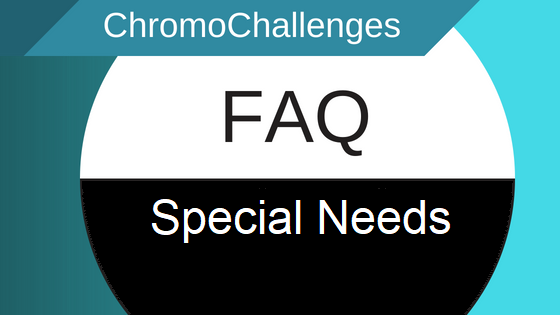T18 FAQ

Read this FAQ from my perspective as a parent of a child who has Trisomy 18 for more information about T18.
What is Trisomy 18?
A trisomy is a chromosome with three copies instead of the regular two. A trisomy on the 18th chromosome means there are three copies of Chromosome 18. Trisomy 18 is also known as T18 and Edward Syndrome.
Prenatal markers
When I was pregnant, my doctor found that my daughter had
- a two-vessel umbilical cord, but normally there are three vessels
- a bowel obstruction found six months into my pregnancy that turned out to be an incompletely formed intestine
- a lower gestational growth rate consistently in the 28th-33rd percentile
Other parents of children with Trisomy 18 encounter these also:
- heart malformations
- rocker bottom feet
- clenched fists
- cysts in the brain area
- small head
- increased fluid over 3 cm during Non-Invasive Prenatal Testing (NIPT)
This is not a complete list, but includes some of the most common symptoms to show during prenatal testing.
Average life expectancy for T18
According to a medical review by Cereda, only 10% or less of Trisomy 18 children see their first birthday[1].
What Google won’t just show you is that a number of children affected by Trisomy 18 DO live past a year. There ARE adults in their twenties and thirties who live with Trisomy 18 today.
Common interventions
The most common interventions I’ve observed among Trisomy 18 families include
- heart repair
- gastrointestinal tube placement (g-tube)
- tracheostomy placement (trach)
- scoliosis corrections
- rocker bottom feet corrections
- swallow studies
- sleep studies
- tongue and lip tie release
Common difficulties
The most common difficulties I’ve observed among Trisomy 18 families include
- developmental milestone delays
- feeding issues and reflux
- irregular sleep cycles
- nonverbal communication
- managing medical equipment
Common therapies
The most common therapies I’ve observed among Trisomy 18 families include
- physical therapy
- occupational therapy
- speech therapy
- swim therapy
Is parenting a child with Trisomy 18 worth it?
After my time in the support groups I follow — one leaning pro-choice, and the other decidedly pro-life — and after having a child with partial Trisomy 18;1 — I can emphatically say YES. Unbalanced is not the same as nonviable.
Nonviable is the incapability of survival. Not everyone in such a position gets a positive outcome, but choosing to allow an unbalanced fetus to continue means you have chosen for it to continue, keep growing, and (with help) thrive if the situation allows for it.
Ethically — so long as you’re prepared to live it with them, it’s not wrong to choose to allow a child with Trisomy 18 to live the life they’re here to live, to whatever end that means. It’s shocking to say and not the definition of terminal that doctors or geneticists say, but it’s very true that LIVING is a terminal illness. Living a life doesn’t always mean until elderly — but life is its own gift, and every life is meaningful.
Parenting a child with Trisomy 18 teaches strength. Due to resistance from the medical field, it’s a crash course in growing a backbone. And it teaches deep compassion for differences and for what life is.
Raising a child with Trisomy 18 is not for the faint of heart, but I haven’t heard once that it wasn’t worth it. It’s so, so scary. But the worse issue is fearing to love. Trisomy children are incredibly loving; there’s zero shame in learning to accept loving them back no matter their circumstances.
Trisomy 18 Reading Materials
This Reading List includes affiliate links that I use to support my work. At no additional cost than what you buy on your own, I may receive a commission if you make a purchase..
- Barnes A, Carey J. Support Organization for Trisomy 18, 13 and Related Disorders (SOFT). Care of the Infant and Child with Trisomy 18 or Trisomy 13: A Care Book for Families. 3rd ed. E-book updated 2014.
- Berg S, Farlow B, Robbins J, Bruns D. International Trisomy 13/18 Alliance. Trisomy 13 and Trisomy 18: Preparing for Your Baby’s Arrival. 2014.
- Cereda A, Carey J. The Trisomy 18 Syndrome. Orphanet Journal of Rare Diseases. 2012;7(81).
- International Trisomy 13/18 Alliance.
- Jacobson B, Turner A. Our Baby Will Be Different (Girl) / Our Baby Will Be Different(Boy). 2017.
- Putnam J. Beyond All Expectations: The Story of Paige Barton. 2003.
- Stenson C, Daley S, Holladay K, Farmer P. Support Organization for Trisomy 18, 13 and Related Disorders (SOFT). Trisomy 18: A Handbook for Families. 3rd ed. E-book updated 2014.
- Support Organization for Trisomy 18, 13 and Related Disorders (SOFT).
Works Cited
- Cereda A, Carey J. The Trisomy 18 Syndrome. Orphanet Journal of Rare Diseases 2012, 7:81. URL [https://www.ncbi.nlm.nih.gov/pmc/articles/PMC3520824/pdf/1750-1172-7-81.pdf].
Get back to The FAQs.



